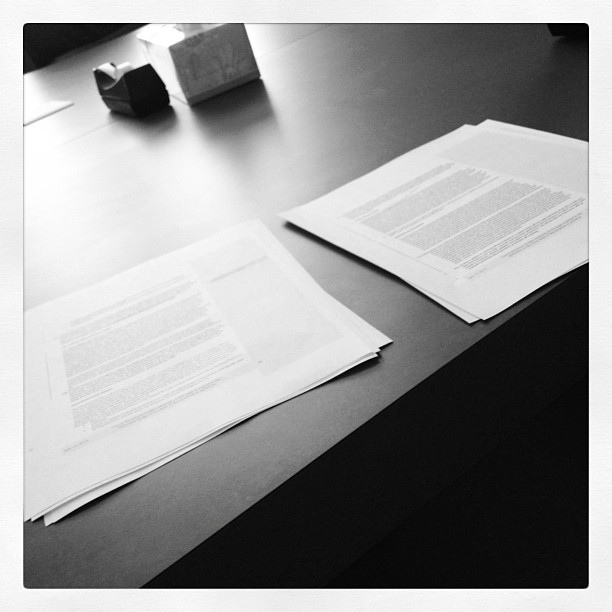Many employers think that Reference Checks are pointless. The most common rationale I hear is that “candidates will only provide references who say positive things about them so why bother?” While it’s true that most candidates try to strategically position their references or provide individuals who will speak highly of them, this isn’t always the case and there are other compelling reasons to invest time in conducting references. When conducted effectively, Reference Checks are an important part of the hiring process because they reduce the risk of a poor hiring decision. Proper documentation at all stages of the employment relationship will also help mitigate costly situations in the future and provide the supporting information needed if things go south. Yes, your time is valuable – so that is exactly why you can’t afford to risk a miss-hire by not completing reference checks!
Here’s a real life situation where reference checks proved to be essential: I was working on-site with an organization that had short-listed three top candidates for a position. The hiring manager wanted to “go with their gut” and felt certain about the hiring decision after interviews. I reminded them of the importance of references as part of the process so we proceeded to that step. Checking references in this case not only uncovered a significant misrepresentation on why a candidate left a position but also concerning interpersonal altercations that had conveniently been left out by another candidate. Skills and fit for the company culture were top priority and the end result was a more informed and successful hire with the third candidate ultimately being chosen.
What to Understand About Reference Checks
Think of Reference Checks as an extension of the interview. They should first be used to verify information received from the candidate such as length of time at an organization, title, duties performed, and their reason for leaving. If any inconsistencies become apparent then this is certainly cause for concern and why it is also important that Reference Checks are conducted by someone who was part of or briefed on the information gathered during the interview process.
In order to adequately assess a candidate’s past performance, references should be work related (supervisor, direct report, co-worker, customer etc.) rather than being character based. Evaluate how the candidate is connected to the reference and ask for references that are as current as possible. If a candidate can’t provide a reference from a past employer or other work related capacity, ask why. If the reason is legitimate (such as they are presently employed there), help suggest other contacts they might reach out to such as previous co-workers who have left the organization, etc. If the reason is questionable, probe further for an explanation.
Tips To Start Using Today
Hiring decisions are critical to any organization so performing the required due diligence is vital regardless of how urgently you need to fill to a vacancy. In order to make your reference check process easier and more effective, follow these Reference Check Tips:
- Use a template: Reference Checks don’t need to be difficult and can be made efficient by creating a standard document (adapted as needed) and keeping completed copies in recruitment/employee files.
- Reference “Checks” are not a checklist: Something is wrong if you are rattling off questions at warp speed. Remember the importance of this process as part of due diligence. Reference Checks take time so expect to spend more than 10 minutes on the phone with each reference.
- Take detailed notes, be thorough, and listen for implicit cues: Sometimes employers are limited by an organization’s policies on how much information they can provide. However, implicit cues, such as tone, can be very telling especially when discussing areas of concern. Try to get all the information you can but if something isn’t sitting right don’t be afraid to go back to a reference with further questions to clarify.
- Use Probing Techniques: When you’re sensing that there is additional information to be provided or a reference is being brief with responses, use open ended phrases such as “tell me more about that…” to gather additional details. References are an opportunity to learn more about a candidate’s various skills and short comings.
- Hire a provider: If all else fails there are service providers who specialize in completing reference checks along with other background/credit checks. This isn’t the ideal option because references are best conducted with context from the entire recruitment process however will ensure due diligence is upheld.
Jaysa Toet is a Partner at Acuity HR Solutions and leads the Recruitment Division. If your organization needs help with creating a robust hiring process, contact Jaysa today for search inquiries or recruitment training.
Have you signed up for the Acuity HR monthly newsletter yet? September’s edition was just released! We keep it fun, light, and informative by providing worthwhile information and free resources like our Employment Termination Check-list. Sign-up today at the following link: https://acuityhr.ca/acuity-hr-newsletter/





